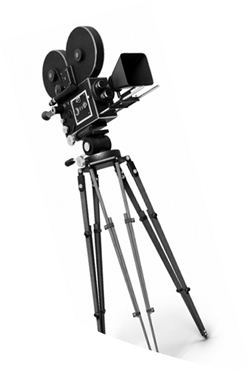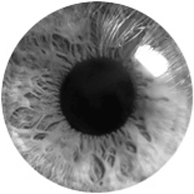Kino (17 page)
Authors: Jürgen Fauth

Suddenly, Steffen was frighteningly sober, and he wasn't accepting apologies. He loudly demanded an answer: “Kino, is this true? You rewrote your movie for that pig Goebbels?”
The room went silent. I felt drained, embarrassed, and tired. Everyone was listening now, and it was easiest to answer the question directly. “Yes. I did.”
Steffen's red-rimmed eyes offered no solace, no friendship.
“I had no choice,” I said. “I am Kino.”
“You're not my friend,” he said. “You have to leave now. Go. Now.”
And that was it, simple as that. There was no gushing outburst of Scheunenviertel slang and Romanian gypsy talk, no manic gestures. The very last words Steffen ever said to me were every bit as bitter as his first, at the Wintergarten, had been seductive. He was right, of course. It
was
time to leave. There was nothing left to be said.
Penelope and I took our coats and left the Belvedere for the last time.
I would never see Steffen again.
When we came home that night, we found the house empty. Leo was gone, along with his political pamphlets. A stamped and signed document on the table informed us that he had been detained. The neighbors said they had watched as a Gestapo van arrived and three men in uniform had led Leo down the driveway.
Abgeholt
, that's what it was called: taken away, as if by a terminal disease or God's will.
Penelope swallowed tears, but her face was stern. “Beliefs are not crimes,” she said. “We will get him out.”
We sat at the kitchen table all night, unable to sleep. At dawn, we went down to Plötzensee prison to find out what Leo was accused of. We spent the day in drab offices decorated with swastikas, taking turns at restless naps on uncomfortable hardwood benches. Finally, we faced yet another brownshirt who adjusted his wire-frame glasses to better read Leo's file with seasoned disdain.
It should not have been a surprise. Leo gave everyone who would listen an earful about the evils of the new government, and for years, he had submitted articles to the communist journal
Vorwärts,
now forbidden. I'd always known that he was risking his life, but he wouldn't listen. He was every bit as stubborn and stupid as his daughter.
A hearing date was set, and the word “
Sippenhaft
” was mentioned, which meant Leo's family could be threatened with investigations as well. We left, dispirited. We knew that Penelope's father could not expect a fair trial. He would be lucky to get tried at all.
There was more bad news waiting for us back at the house: Ute, pale and devastated, was waiting on our front steps. In the early hours of dawn, after the last guests had left the party, Steffen had sent the musicians and the help home, lit the chandeliers, put Whispering Jack Smith on the gramophone, and shot himself up with a lethal overdose of morphine.
He left no note.
Ute explained that he had been lying about Ray and New Yorkâhe had been dumped, left behind all alone with instructions to sell the villa and forget their affair. He'd been left to the Nazis and his own diminished devices, and he must have felt that he had nowhere left to turn.
All I wanted at that moment was to take back the rewrites, take back that awful last time I'd seen him. But Steffen had always been savvier than me and I wondered if in killing himself, he had somehow taken control and shown the courage I lacked, and what was I supposed to do now? With my wife's father in a Nazi prison, what options did we have? Herr Dokter, my last true friend was dead, and I was trapped.
With its rightful owner gone, the Belvedere was taken over by the government. Only a few short years after our last sad debauch, high-ranking Nazis met at another lakeside villa, just a little ways up the street, with the same gorgeous views of the sailboats and the lido, the same gentle waves lapping at their pier, and agreed on what they called the Final Solution to the Jewish question in Europe.

Out of desperation, I contacted Thea von Harbou. She had, in fact, joined the Nazi party, but I hoped a fellow filmmaker and great artist might have valuable advice. I was not wrong: Thea liked to think of herself as a patriot, not a fascist. In the end, it was a useless distinction, but at that time, her loyalty wasn't total. She was concerned when I told her what had happened to Penelope's father, and I was glad I'd come to her. I remembered the time my leg had fallen off during
Die Nibelungen
and she saved me from Lang's wrath. Just being in her calming presence made me feel optimistic. I would gladly do whatever Thea suggested.
“Silly Klaus,” she said with a wink. “Your worries are only a symptom of your need for drama. You want to be the center of attention, the special case, the outlaw. I am sorry for what happened to your friend, and of course I am also worried about your father-in-law. But do you really think sneaking away like Fritz will help, when you have every opportunity here, in Germany? Why would you run to America and pretend their system isn't ruled by special interests? Who do you think owns Hollywood? You may not agree with Goebbels's politics, but he is a man of discerning taste. The movies are always beholden to somebodyâso why not stay home, where truly great things are possible? Accept Weidemann's offer, work for the glory of the German people. It is the only solution.”
She poured me a cognac and patted my hand, as if I were one of her beloved lap dogs. What if she was right? At any rate, I felt that I had run out of options. The next day, I called Weidmann's office and accepted his offer to direct
Luftschiffwalzer.
Don't shake your head at me, Herr Dokter. At the time, it felt like the heroic thingâto hold out hope instead of stealing away like a coward. Hope for Leo, hope for Germany, hope for
Pirates.
Hope for Penelope and myself.
A week later, word came down that my
Pirates
rewrites did not comply with RFK requirements. My older films were banned from public presentation. The verdict claimed that my work was admired “by socialists, communists, faggots, Frenchmen, and negroes.” My films were categorized as degenerate art. Under the exhibition ban, all prints were locked away in the Ufa archives. I appealed with the
Reichspropagandaminister
himself and petitioned Ufa president Hugenberg. I contacted Tobis Film. I even spoke to my brother Heinz about funding me independently, but nothing could be doneâthe verdict of the
Reichs-Film-Kammer
was final.
Goebbels's praise for
Tulpendiebe
had been a trap, a lie. He knew enough to recognize my incredible talent, but he wanted to press it into the service of his own dark visions. My movies were to be locked up and hidden from view while I followed orders. I used to write, direct, and edit all my films, but under no circumstances would the nationalized Ufa grant me that freedom. For the next ten years, as the world fell apart, I made idiotic, pandering operetta entertainments ordered up by mass murderers. Instead of constructing cathedrals of light, I built garish tombs.
Luftschiffwalzer
, written by a young hotshot from Dotzheim, was a success with German audiences desperate for escape. Next, they assigned me
Tanz um die Welt
, an insipid singspiel about the world tour of a Bavarian Schuhplattler who picks up local dances on the way and is reconciled with his estranged wife, who also happens to be a dancer.
I can proudly say I never made propaganda about war or destiny, advertisements for death like Leni or Ucicky or Veit Harlan. My films were opulently designed and outfitted, and in the beginning, Goebbels made sure I had the budget for lavish productions. I made romantic kitsch designed to numb the masses for a few merciful hours. As much as I hated them, at least they were movies, and they kept me sane. While I churned out fluff, cruelty manifested everywhere:
Kristallnacht
, the
Anschluss
, war, fear, suffering, and hatred. Leo remained in prison but we lived handsomely while the world went up in flames.
Penelope refused to take another role. When she wasn't hopelessly pleading her father's case, she retreated into the library while I filmed good Germans waltzing and kissing. Word of American films reached us, but we couldn't see them; even in Germany, my movies were forever second-rate to the big prestige productions, the
Bismarck
movies,
Titanic
, Albers's
Münchhausen
. We waited for Germany to come to its senses.

My brother Heinz brought the news in forty-two: Leo had contracted pneumonia in Bergen-Belsen and died. Penelope was inconsolable, but to me, the news was also a relief. The waiting and the worry were finally over. She would never see her father againâhe had disappeared into the camps along with millions of others.
At the time, I was shooting the last scenes of
Matterhorn
, a latter-day mountain movie that was filmed entirely in the studio and was too laughable for even Arnold Fanck. The scripts kept getting worse, and my budgets had been slashed. When I protested, Goebbels offered to send me to Poland as a war reporter. By now, he was busy whipping crowds into a mad frenzy for total war, and he had little respect for movies he now considered over-aestheticized and bourgeois.
I had begun to despise my work, and I became an expert at carefully tarnishing shots, sneaking imperfections into the films. It gave me pleasure to subvert them ever so slightly. In the big finale of
Brünette auf dem Kurfürstendamm
, one of the chorus girls has a nose bleed. I was delighted that she made it unnoticed past the censors. I confused street names and purposefully got historical details wrong. It wasn't much, but the flaws inserted a small element of truth into my creations, a chink in the armor, a seed of hope. Eventually, the war would end and I would make films again.
My
films.
After learning of Leo's death, I got more reckless on the set of
Matterhorn
, with absurd line readings, new dialogue, and overuse of the wind machines. There were murmurs of protest from the cast. While Willy Fritsch riffed on what he'd had for breakfast, some dark glances aimed my way left no doubt that I would be denounced if this kept up. Only a few months ago, Herbert Selpin, the director of
Titanic
, had been arrested by the Gestapo in mid-shoot after he openly criticized the script. The following morning, he'd been found dead in his cell, and Werner Klingler finished the movie. It was now obvious to anyone that Goebbels would not hesitate to murder his directors.
Penelope and I drowned our regrets in alcohol. Every night found us schnapps-drunk and morose, every morning hung over and bitter. Something had to happen, and it was Penelope who declaredâfinally, finallyâthat the time had come. With her father dead, nothing kept us in Germany. I agreed right away, no matter how difficult it would be.
Lutz Hackauf, once Steffen's man for rough jobs, was now in the refugee business, smuggling people through France and North Africa to America. In exchange for our house and the last of our savings, he furnished us with fake passports and passage on a sleeper train to Paris. I hid our last thousand Reichsmark in a hollowed-out compartment in my leg.

